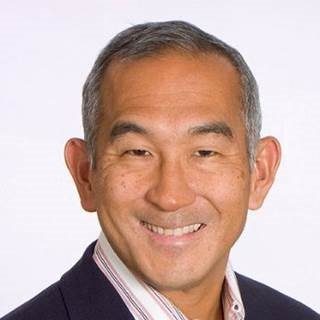 At Optimizely, we work closely with some of the top retail companies as well as 22 of the Fortune 100 and have seen firsthand how marketers are adapting their strategies to the changing times. Several common themes have emerged from our observations, and I have a few predictions on how these will play out in 2018 and beyond. Retail marketers, take note:
At Optimizely, we work closely with some of the top retail companies as well as 22 of the Fortune 100 and have seen firsthand how marketers are adapting their strategies to the changing times. Several common themes have emerged from our observations, and I have a few predictions on how these will play out in 2018 and beyond. Retail marketers, take note:
Retail brands offering the best digital experiences will win: Customer experience is at a tipping point, and retailers thatprovide a seamless customer-centric experience will not only stand out from the rest but encourage loyalty. Case in point —online mattress startup Casper found a way to upend the traditional way of mattress shopping by reinventing the entire experience online, emphasizing the ease of purchase, delivery and return process. The company has won a cult-like following for its digital presence too, including the use of “Staycation Story Hacks,” a Casper-owned website that houses content readers can share on social media. We’ll see more of this in 2018 as consumer experiences increasingly focus on storytelling and engagement.
To achieve this level of increased interaction from consumers requires a great deal of collaboration behind the scenes. Traditionally retailers have worked in silos with one team focused on merchandising, one on marketing, one on product development, etc., but to create a seamless customer experience the product, digital and web teams must all work together to ensure pricing, images, checkout flow and content all align with the brand’s goals.
Experimentation drives strategy and the digital customer experience: Gartner predicts the rise of mixed reality over the next five years, where users interact with real-world and digital objects in parallel to create an immersive experience. I see this as an evolution of the concept of omnichannel commerce, which first came about in 2003, when consumers had two distinct options: to buy in-store or online. Today, the customer experience goesfar beyond those two channels. Touchpoints that didn’t exist even a couple of years ago — mobile everywhere, Alexa/Google Voice, virtual reality, connected cars, OTT programming — are adding to this complexity. Marketers and developers must work together to create personalized, connected experiences. Multiple touchpoints can no longer be considered separate, as one influences the other for every consumer, every day.
In 2018, organizations will successfully scale this kind of constant innovation only through digital experimentation: testing every touchpoint and using outcome data to drive business decisions based on statistical rigor.
If you ignore business metrics in optimizing your digital performance, expect a shrinking marketing budget: This past year we’ve seen consumer expectations heighten while marketing budgets have shrunk. According to a recent Gartner survey, in 2017 the average amount of revenue allocated to marketing was 11.3%, compared with 12.1% from the previous year. Survey results suggested some marketers haven’t been able to justify previous budget increases because they failed to focus on business metrics that actually matter to their companies.
In all of the excitement around the latest AI trend or a breakthrough in VR, it appears we’ve abandoned our commitment to being outcome-driven and aligned with the rest of the business. As a marketer with 25+ years of experience, I think it’s time we approach the year ahead with an eye toward connecting our programs to the bottom line, asking ourselves what metrics do we need to see our budgets increase next year and really help the valuation of our companies.
Carl Tsukahara is Chief Marketing Officer at Optimizely and is responsible for all global marketing strategy and execution. A 25+ year veteran of Silicon Valley, Tsukahara was most recently Chief Marketing Officer for Birst, a category leader in delivering enterprise business analytics to major global corporations. He also has held executive management roles at other high growth entities including Evolv, Monitise and Vitria Technology. As a strategy and marketing consultant, Tsukahara also worked with companies and product groups such as Workday, Microsoft, Riverbed Technology, Taleo, D&B, Hyperion, Symantec and VMware, working directly with the executive management of those organizations. He also has held operational roles in field sales, corporate strategy and software engineering, and holds a degree in Electrical Engineering and Computer Science from the University of California, Berkeley




